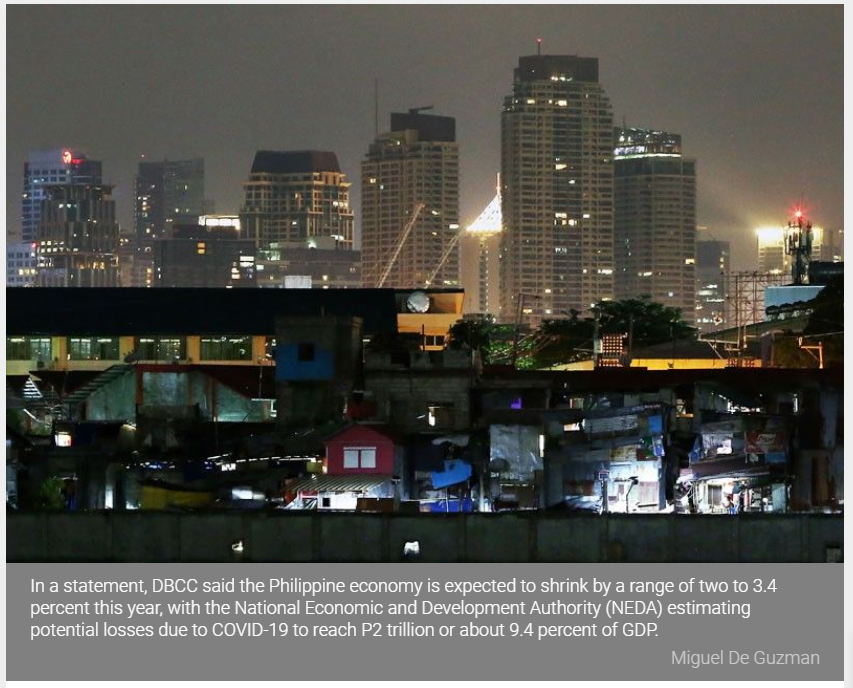Philippines: Government economic team sees deeper GDP slump
MANILA, Philippines — The inter-agency Development Budget Coordination Committee (DBCC) has further lowered its gross domestic product (GDP) projection this year as the economy continues to suffer from the impact of the coronavirus disease 2019 or COVID-19 pandemic.
In a statement, DBCC said the Philippine economy is expected to shrink by a range of two to 3.4 percent this year, with the National Economic and Development Authority (NEDA) estimating potential losses due to COVID-19 to reach P2 trillion or about 9.4 percent of GDP.
This is worse than the DBCC’s previous projection that GDP could register zero percent growth or contract by 0.8 percent in 2020.
National Statistician Dennis Mapa said that if GDP does shrink at this range, it would be the lowest since the country recorded a 6.9 percent contraction in 1985, a year before the end of the Marcos regime when the country was struggling with a debt crisis.
This would also put an end to the Philippines’ 21-year growth streak as the last time GDP contracted was in 1998, when the economy reeled from the effects of the Asian financial crisis and the El Niño phenomenon.
Before the COVID-19 crisis, economic managers were looking at an economic growth target of 6.5 to 7.5 percent for 2020.
In the first quarter of the year, the country’s GDP contracted by 0.2 percent.
Still, DBCC expressed confidence that the timely implementation of a recovery program, alongside efforts of the private sector, would help the economy bounce back and register GDP growth of 7.1 to 8.1 percent in 2021.
“Such a program will help the country regain confidence, attain higher economic growth, and restore employment rates to pre-crisis levels,” DBCC said.
The DBCC, composed of the Department of Budget and Management (DBM), Department of Finance (DOF), Bangko Sentral ng Pilipinas (BSP) and NEDA held a meeting on Tuesday to review the country’s macroeconomic indicators and fiscal program amid the COVID-19 crisis.
During the meeting, the inter-agency body maintained the country’s target inflation at two to four percent for 2020 to 2022. However, it lowered the inflation assumption for 2020 to a range of 1.75 percent to 3.75 percent due to subdued demand.
For 2020, the BSP recommended the adoption of a lower price assumption for Dubai crude, ranging between $23 to $38 per barrel, due to the substantive weakness in global oil consumption amid the COVID-19 crisis.
This is expected to increase to a range of $35 to $50 per barrel in 2021 and 2022.
According to the DBCC, BSP also recommended to cut the 2020 growth assumptions for goods exports and imports to negative four percent and negative 5.5 percent, respectively, in anticipation of the global economy’s sharp contraction as a result of the pandemic.
The growth in exports is expected to recover to five percent in 2021 to 2022, while growth in imports is projected to bounce back to eight percent.
Meanwhile, the DBCC also maintained the foreign exchange assumption for 2020 to 2022 at P50 to P54 against the US dollar.
Source: https://www.philstar.com/business/2020/05/14/2013792/government-economic-team-sees-deeper-gdp-slump


 English
English




